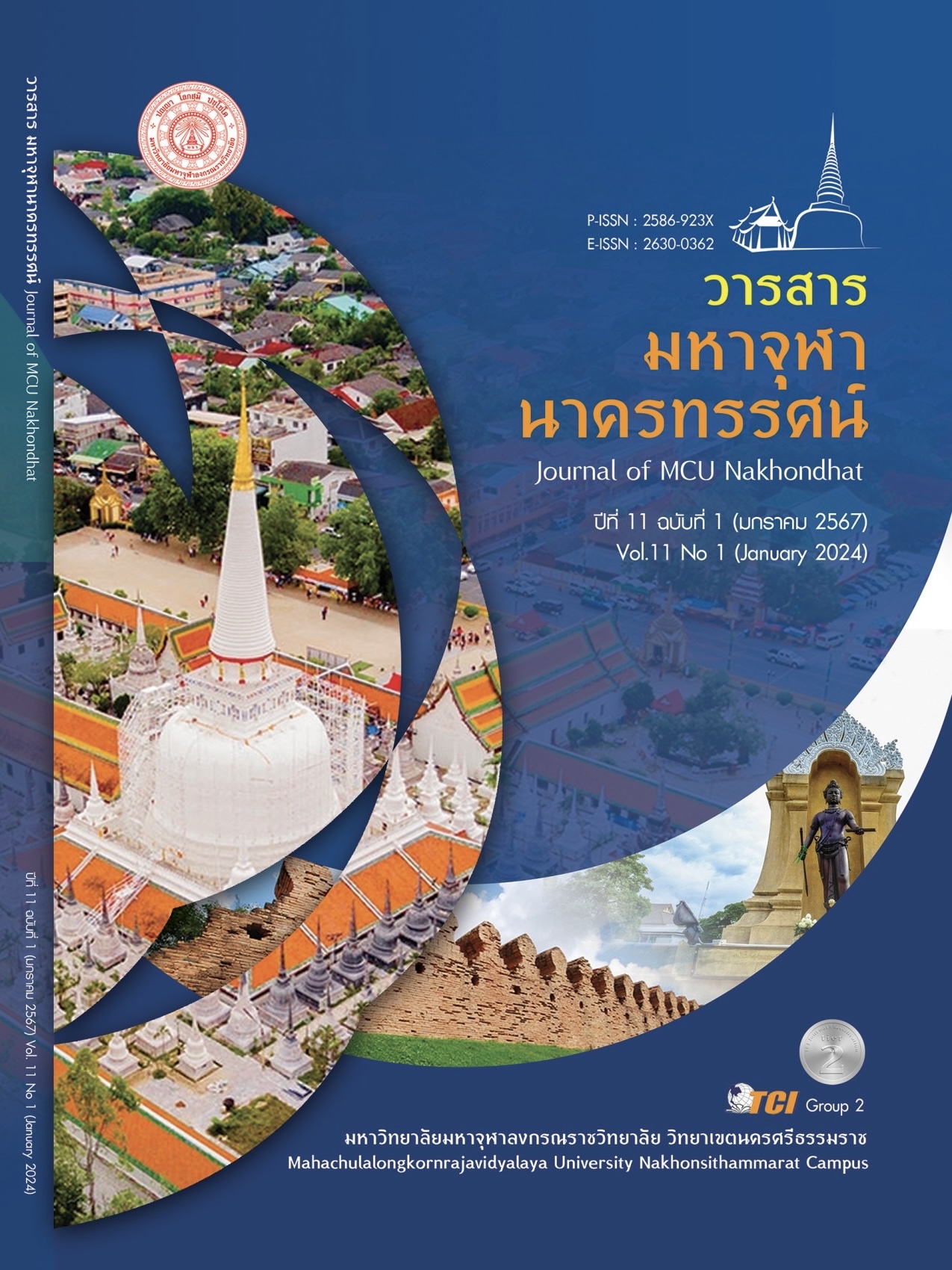HUMAN CAPITAL DEVELOPMENT THE DEGREE OF MASTER OF EDUCATION
Main Article Content
Abstract
This research employs the framework of Piaget's Cognitive. Theory to develop human capital through intellectual advancement. It focuses on curriculum, experiences, teaching/development, and assessment. The objectives are: 1) To study the development of human capital in graduate - level education, 2) To compare viewpoints on human capital development in graduate education categorized by gender and work experience, 3) To identify suggestions for human capital development as per requirements. The population comprises students in the Education Management Master's program at Bangkok Thonburi University in the 2021 academic year. (Purposive sampling) yielded 267 participants, with 158 completing the questionnaire utilizing a 5 - level rating scale. Statistical analyses involved frequency distribution, percentages, mean values, standard deviations, t-tests, and content analysis. The research findings indicate: 1) Overall, human capital development in graduate education is at a significantly high level, 2) Gender and work experience - based perspectives on human capital development in graduate education do not significantly differ, and 3) Recommendations for human capital development propose studying managerial practices both domestically and internationally, along with increased research for further critical analysis.
Article Details

This work is licensed under a Creative Commons Attribution-NonCommercial-NoDerivatives 4.0 International License.
References
จินต์จุฑา จันทร์ประสิทธิ์. (2559). การพัฒนาทรัพยากรมนุษย์ของบุคลากรทางการศึกษา สถาบันบัณฑิตพัฒนศิลป์. เรียกใช้เมื่อ 19 ธันวาคม 2566 จาก https://reposit ory.rmut r.ac. th/b its trea m/ha ndle/123456789/1004/fulltext_is_78.pdf?sequence=1&isAllowed=y
บัณฑิตา เพิ่มเดช. (2564). การพัฒนาทรัพยากรมนุษย์ที่ส่งผลต่อประสิทธิภาพในการปฏิบัติงาน ของบุคลากรสำนักงานการตรวจเงินแผ่นดินส่วนกลาง. ใน วิทยานิพนธ์มหาบัณฑิต สาขาวิชาการบัญชี คณะบริหารธุรกิจ. มหาวิทยาลัยรามคำแหง.
ภัทร พจน์พานิช. (2561). การพัฒนาทรัพยากรมนุษย์ภายใต้นโยบายประเทศไทย 4.1. เรียกใช้เมื่อ 19 ธันวาคม 2566 จาก https://r.search.yahoo.com/
มินตา ขวัญงาม. (2563). การพัฒนาทรัพยากรมนุษย์ที่ส่งผลต่อประสิทธิภาพการปฏิบัติงานในองค์กรของ พนักงานภาคเอกชน กรุงเทพมหานคร. เรียกใช้เมื่อ 20 ธันวาคม 2566 จาก http://www.vl-abstract. ru.ac.th/AbstractPdf/2562-1-1_1607859057.pdf
สำนักงานคณะกรรมการการอุดมศึกษา. (2553). คู่มือการประกันคุณภาพการศึกษาภายในสถานศึกษา ระดับอุดมศึกษา พ.ศ. 2553 (ฉบับเดือนพฤศจิกายน 2553). เรียกใช้เมื่อ 19 ธันวาคม 2566 จาก http://dspace.spu.ac.th/bitstream
สุภาวดี ขุนทองจันทร์. (2559). การบริหารทรัพยากรมนุษย์อย่างบูรณาการ พ.ศ. 2559. กรุงเทพมหานคร: ซีเอด็ยูเคชั่น.
Erickson, G. & McCall, M. (2012). “Using Intellectual Capital to Enhance Performance in the Hospitality Industry”. Advances in Competitiveness, 20(1), 58-66.
Likert. (1970). New Partterns of Management. New York: McGraw - Hill.
Nadle, L. (1980). Corporate Human Pesources Development. New York: Americxn For Training and Development.
Senge, P. (1990). “The Fifth Discipline: The art & practice of the learning organization,”. London: Century Business.


